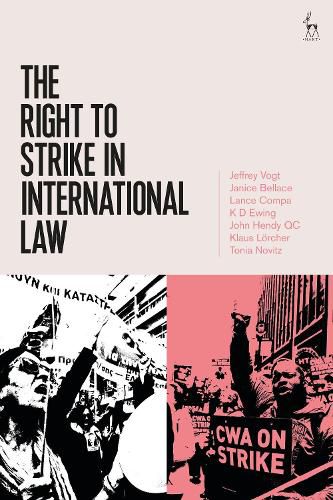Readings Newsletter
Become a Readings Member to make your shopping experience even easier.
Sign in or sign up for free!
You’re not far away from qualifying for FREE standard shipping within Australia
You’ve qualified for FREE standard shipping within Australia
The cart is loading…






This monograph was originally developed as a direct response to the claim made by members of the ‘Employers Group’ at the 2012 International Labour Conference, namely that the right to strike is not protected in international law, and in particular by ILO Convention 87 on the right to freedom of association.
The group’s apparent aim was to sow sufficient doubt as to the existence of an internationally protected right so that governments might seek to limit or prohibit the right to strike at the national level while still claiming compliance with their international obligations. In consequence, some governments have seized on the employers’ arguments to justify new limitations on that right.
The Right to Strike in International Law not merely refutes this claim but is the only complete and exhaustive analysis on this subject. Based on deep legal research, it finds that there is simply no credible basis for the claim that the right to strike does not enjoy the protection of international law; indeed, the authors demonstrate that it has attained the status of customary international law.
$9.00 standard shipping within Australia
FREE standard shipping within Australia for orders over $100.00
Express & International shipping calculated at checkout
This monograph was originally developed as a direct response to the claim made by members of the ‘Employers Group’ at the 2012 International Labour Conference, namely that the right to strike is not protected in international law, and in particular by ILO Convention 87 on the right to freedom of association.
The group’s apparent aim was to sow sufficient doubt as to the existence of an internationally protected right so that governments might seek to limit or prohibit the right to strike at the national level while still claiming compliance with their international obligations. In consequence, some governments have seized on the employers’ arguments to justify new limitations on that right.
The Right to Strike in International Law not merely refutes this claim but is the only complete and exhaustive analysis on this subject. Based on deep legal research, it finds that there is simply no credible basis for the claim that the right to strike does not enjoy the protection of international law; indeed, the authors demonstrate that it has attained the status of customary international law.